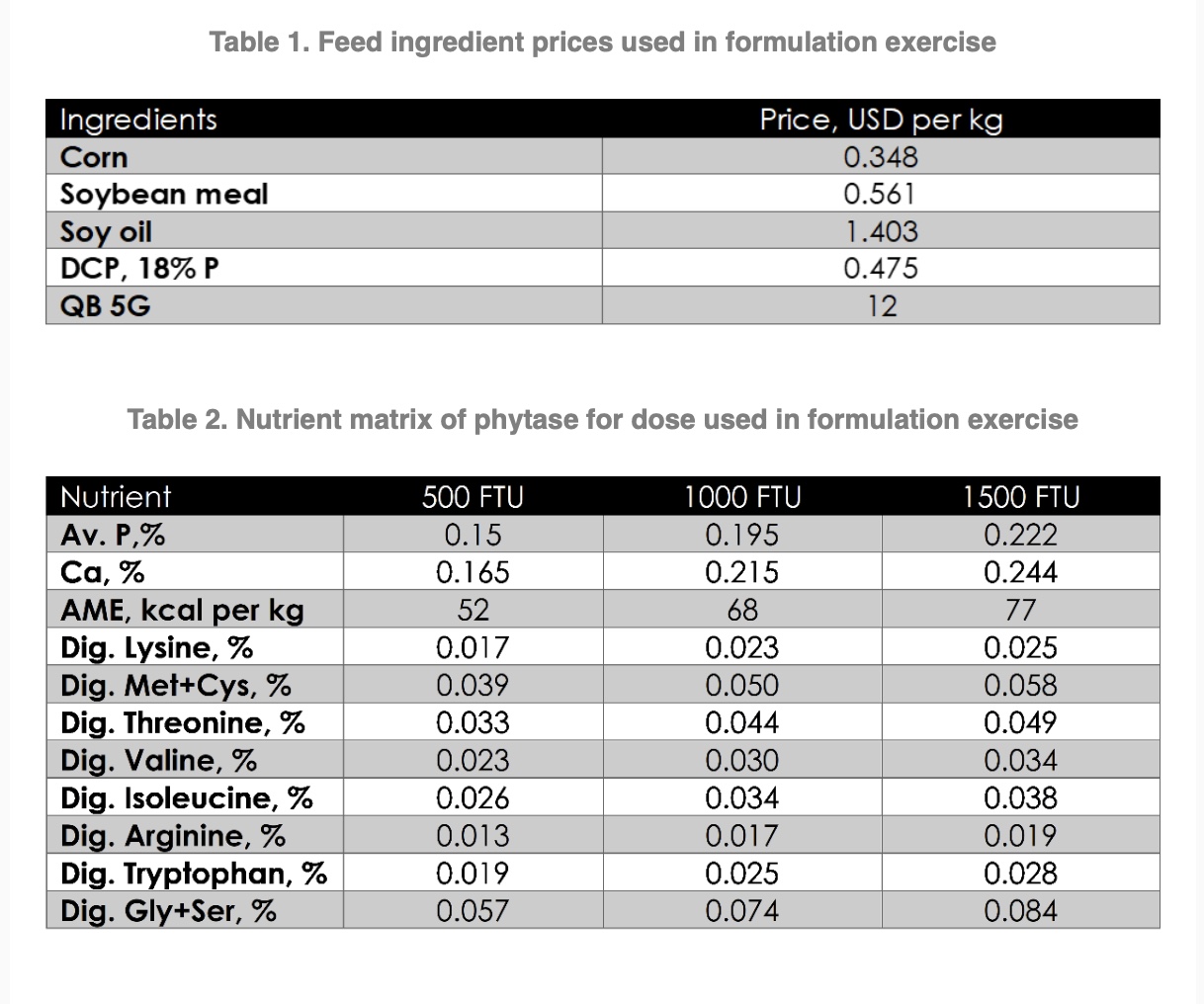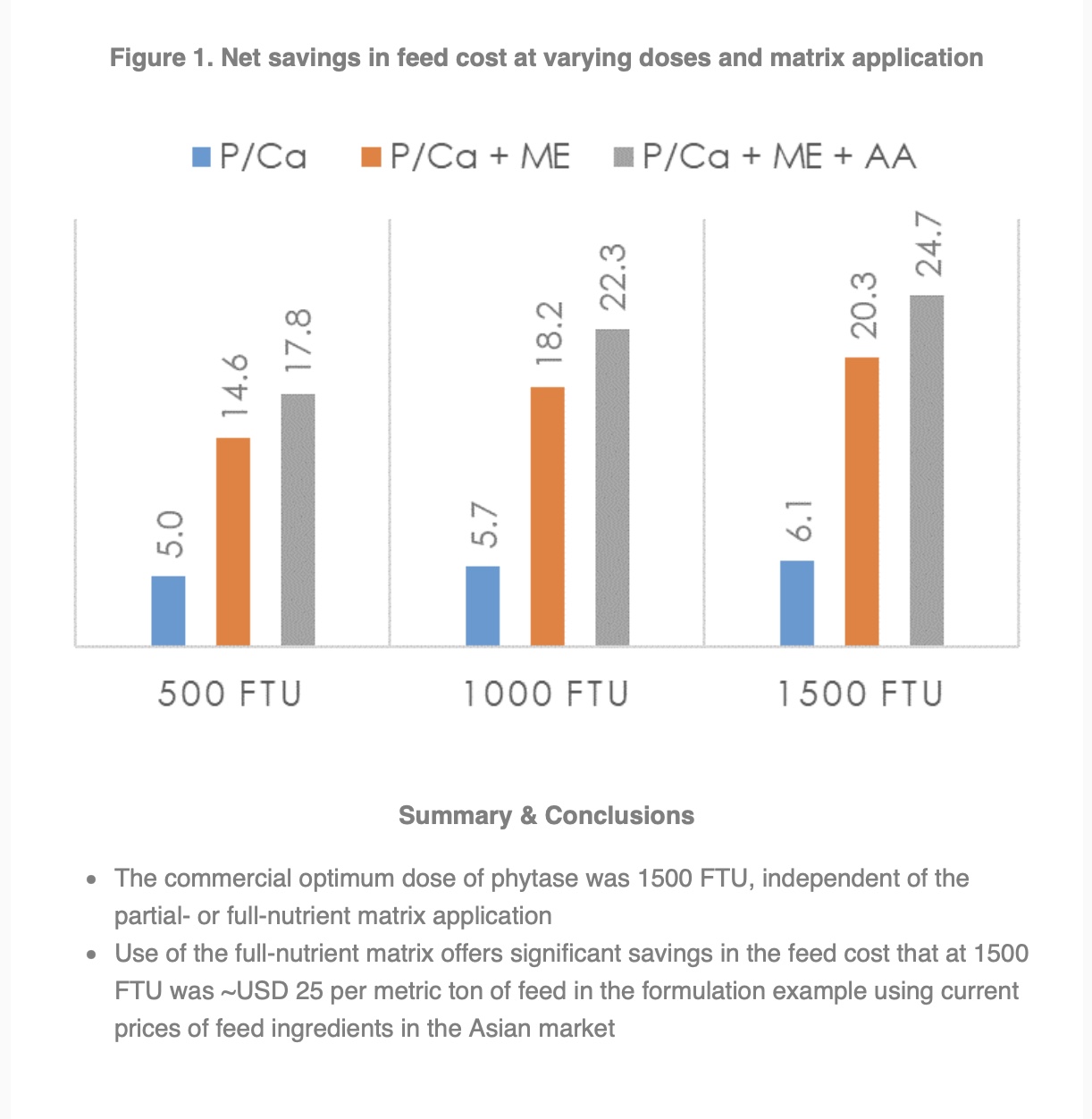AB Vista Research Highlights - 02/2023 by Dr. Usama Aftab, Ph.D. Technical Director (ASPAC)
2313 Views |

The integration of exogenous phytase into the feed industry in the early 90’s was driven by an increased demand to cap phosphorus excretion by intensive poultry and pig production. In the following years, the research interest in this field opened new avenues, exploring the value of phytase beyond phosphorus. During these years, a wealth of published information was presented suggesting that the benefits of phytate breakdown were manifold and encompasses ‘sparing’ the other mineral cations, energy, and amino acids in addition to its core objective i.e., making phytate-bound phosphorus available to the animal. The scientific development in basic and applied research in this field constantly shaped the way phytases were perceived and used by the commercial feed industry.
In the early years of phytase journey, it was common to apply a dose of phytase delivering 500 FTU per kg of finished feed, using phosphorus and calcium matrix. With the development of more efficient-phytases, the possibility of more complete phytate hydrolysis became reality. Published evidence strengthened the view that more complete phytate hydrolysis offers significant sparing of dietary energy and amino acids. In view of the high cost of energy and amino acids, the feed costs savings associated with the use of full-nutrient matrix of phytases were substantially higher than those obtained by the application of mineral-only matrix.
The aim of this short communication was to provide an update on the potential feed cost savings associated with phytase use. A commercial-type, broiler grower diet, with 3000 kcal per kg AME and 1.08% digestible lysine was used as a reference and the current prices of feed ingredients in the Asian market were used for feed formulation (Table 1). The official nutrient matrix of Quantum Blue phytase was used in this exercise (Table 2). Figure 1 summarized feed cost savings when three doses of Quantum Blue i.e., 500, 1000, and 1500 FTU were applied each using mineral-only, mineral plus energy, or mineral plus energy plus amino acids matrix.



